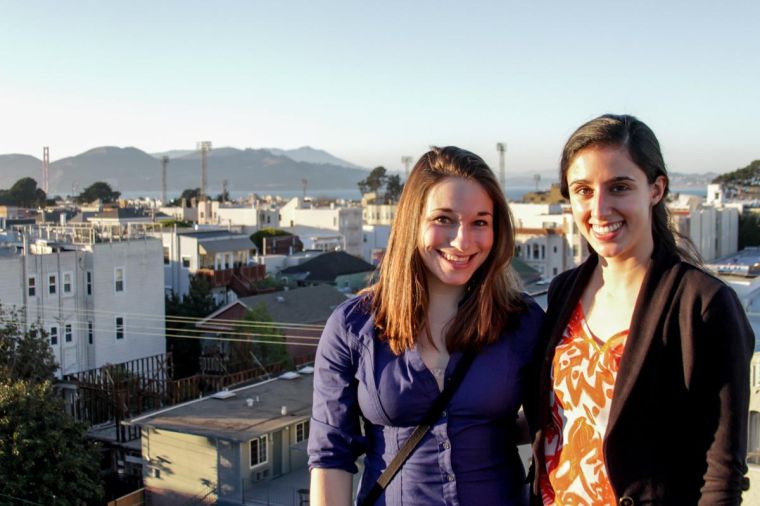Engineering students create dolls to inspire young girls
Mar 18, 2014
It all started with a pack of gummy worms, a pressing competition deadline and two University students’ intent on changing the world.
Just over a year later, Janna Eaves, junior in Engineering, and Supriya Hobbs, senior in Engineering, are competing for a second time in the Cozad New Venture Competition through the Technology Entrepreneur Center at the University with their award-winning product, Miss Possible.
The concept is to create dolls modeled after accomplished women in nontraditional roles, like Marie Curie, two-time Nobel Prize winner credited with the discovery of Polonium and Radium. The dolls will be created to resemble these women as 10-year-olds to make them more relatable, Eaves said.
Miss Possible Dolls will also come with a computer app.
“Our goal is not just to inspire (girls), but to help them develop the skills they need to succeed,” Hobbs explained. “And that’s where the app comes in.”
Get The Daily Illini in your inbox!
Eaves and Hobbs met when they both participated in the Innovation Living Learning Community at Illinois Street Residence Hall. Their adviser and mentor, Jenn Bechtel, insisted that they submit an idea for the Cozad Competition in January 2013.
Through their outreach work in the Society of Women Engineers, Eaves and Hobbs identified a lack of visibility of role models for young girls. Their solution was to create something that would inspire young girls to imagine possible roles beyond mainstream media representations.
“We’re not just a product. We’re not just selling a doll,” Eaves said. “We’re kind of representing the whole movement of lifting girls up and exposing them to all of the options that they have.”
Hobbs and Eaves recounted some of their experiences working with young girls. Even the girls who expressed great enthusiasm for activities like making explosions, mixing chemicals and working with computers said that they wanted to be fashion designers or teachers, Hobbs said.
“What we’re trying to emphasize is the number of possibilities that are out there,” Hobbs said. “If they want to be a fashion designer, then by all means, be the best fashion designer out there. But make sure that you recognize that that’s not your only option.”
After landing in the top eight out of 80 competitors in the 2013 Cozad Competition, Miss Possible was also a finalist in February in the Entrepreneurial Excellence: Student Startup Award for Innovation Celebration. Additionally, Hobbs and Eaves are in the process of competing for the 2014 Cozad Competition again largely because building a doll is an extremely costly venture and the competition offers them the chance to earn funding. This year, they anticipate having a 3-D printed prototype of the doll for the final round, although that is still in the works.
Miss Possible is also enrolled in the Microsoft Imagine Fund, which provides both monetary and developmental support. Through this fund, Eaves and Hobbs attend online classes twice a week to “push the project forward every week.”
Though both Eaves and Hobbs said their parents were very supportive from the beginning, they said they tend to have a lot of ideas and their parents have become more enthusiastic with the increased attention and building success of Miss Possible.
Hobbs’ parents are both chemists, and Eaves’ are both trained engineers; Eaves’ parents even hang burned circuit boards from failed experiments on their Christmas tree.
With the support of Bechtel, their parents and team, Hobbs and Eaves said that Miss Possible has been a group effort.
“Everyone brings something to the table,” agreed Kelly Lin, junior in Industrial Design. “I get to learn a lot from working in such a diverse team and all of the ideas thrown around. We really respect each others’ ideas.”
Even when the team is not physically in the same place, Lin said, they have groups online to stay connected.
Although balancing demanding academics, extracurricular activities and the Miss Possible project is certainly time-consuming, Hobbs and Eaves said Miss Possible is not a source of stress. In fact, they plan to make it their career.
“When you’re working on something you’re so passionate about, it doesn’t feel like work. Even when I’m resting, I’m thinking about Miss Possible,” Eaves said. “So it’s kind of like this pervasive force; schoolwork is the side project.”
With the help of an espresso maker, and what tends to be much less than the recommended eight to nine hours of sleep a night according to Hobbs, they make it work. They simply believe so strongly in the message of their project that it makes all of the effort worth it.
“What brings strength to what we’re doing is that it’s real women behind it. It’s real women with real stories, and no one can say my life can’t be like that — because someone’s life actually was like that,” Hobbs said. “We want girls to say she’s done all of these amazing things, and she was once a girl just like me. I can do that too.”
Maggie can be reached at [email protected].






